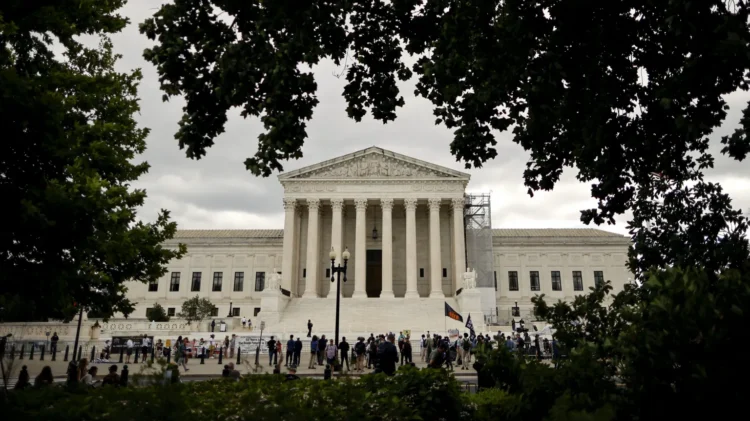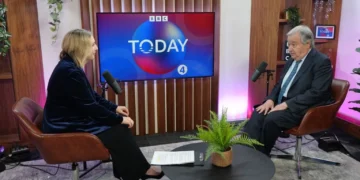In a landmark decision, the US Supreme Court has granted the Trump administration the authority to resume deporting migrants to countries other than their own, overturning a lower court order that had paused such removals.
The 6-3 ruling, delivered on Monday, marked a sharp ideological divide among the justices. The court’s conservative majority reversed a prior mandate that required the government to provide migrants a “meaningful opportunity” to contest the dangers they may face if deported to third countries. The ruling allows immigration officials to continue sending migrants to nations where they may not have citizenship or familial ties.
The case centered on eight individuals from Myanmar, South Sudan, Cuba, Mexico, Laos, and Vietnam who were removed from the United States in May, reportedly en route to South Sudan. While the Trump administration labeled them as “the worst of the worst,” lawyers for the migrants claimed several had no criminal convictions.
The decision drew strong condemnation from the court’s three liberal justices—Sonia Sotomayor, Elena Kagan, and Ketanji Brown Jackson—who denounced the majority’s unsigned opinion as a “gross abuse” of judicial discretion. Sotomayor, writing for the dissent, warned that the ruling puts thousands at risk of “violence in far-flung locales.”
“Apparently, the court finds that danger more acceptable than the remote possibility that a lower court overstepped by ordering the government to follow due process,” she wrote. “That use of discretion is as incomprehensible as it is inexcusable.”
The Department of Homeland Security hailed the decision as a win for national security. “Fire up the deportation planes,” said DHS spokeswoman Tricia McLaughlin. US Solicitor General John Sauer argued that such deportations are necessary when home countries refuse to accept violent offenders, saying the US had been “forced to establish a makeshift detention facility” in Djibouti for the detainees.
The ruling represents another immigration victory for President Trump, who has campaigned on a platform of aggressive border control and deportation policies. It follows closely on the heels of other high court decisions allowing the end of Temporary Protected Status (TPS) for Venezuelan nationals and a temporary pause of a humanitarian parole program aiding migrants from several crisis-hit nations.
Immigrant rights advocates, however, expressed alarm. Trina Realmuto, executive director of the National Immigration Litigation Alliance, called the decision “horrifying,” warning it “exposes our clients to torture and death.”
The broader implications of the ruling are expected to reshape how the US handles deportations to third countries, especially in cases where individuals face potentially life-threatening conditions.










